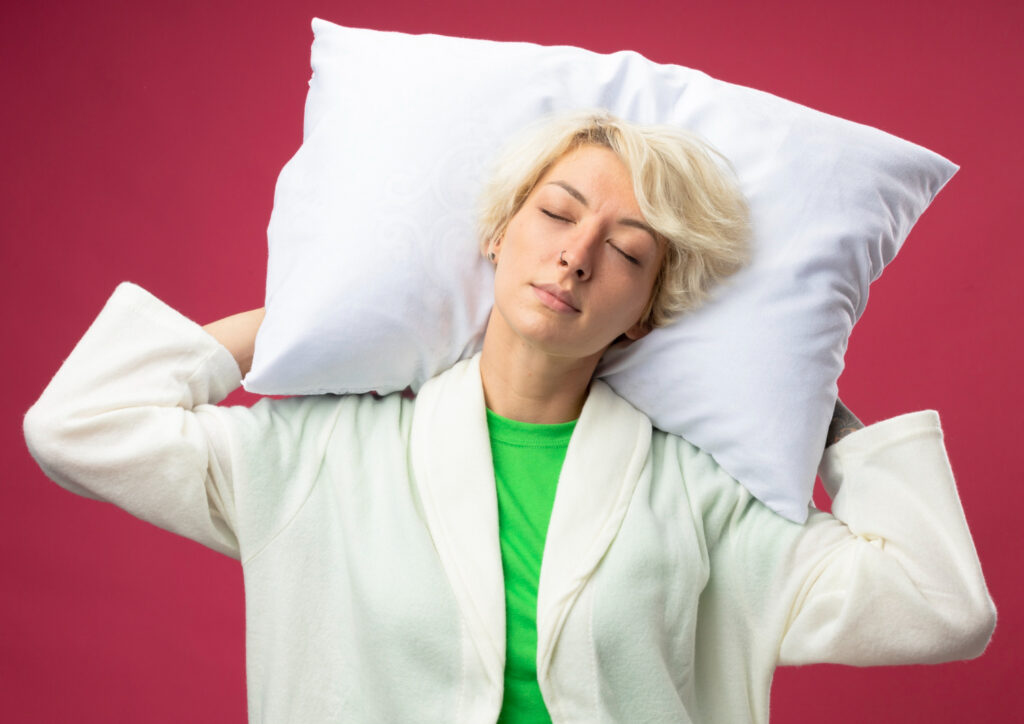
Overview
Vertigo is a common but challenging condition characterized by a dizzying sensation of spinning, tilting, or loss of balance. It can interfere with daily activities and make simple movements feel disorienting and, at times, unsafe. Often linked to problems with the inner ear, vertigo may also result from various other health issues such as migraines, anxiety, or blood circulation problems.
This article explores effective, natural home remedies that can help manage and alleviate vertigo symptoms, bringing relief without relying heavily on medications. From exercises that promote inner ear balance to dietary adjustments, essential oils, and lifestyle changes, this comprehensive guide offers holistic strategies for managing vertigo at home.
Let’s dive into what causes vertigo, its symptoms, and the most effective ways to find natural relief
Table of Contents
Understanding Vertigo: Types, Causes, and Symptoms
Before diving into remedies, understanding vertigo’s underlying mechanisms can help determine the best management strategies.
Types of Vertigo
- Peripheral Vertigo: This is the most common type, typically caused by issues within the inner ear. Inner ear problems affect the vestibular system, which is responsible for maintaining balance and spatial orientation.
- Central Vertigo: Less common, this type results from issues within the brain, particularly in areas that control balance and spatial perception, like the cerebellum. Causes can include migraines, multiple sclerosis, or even strokes
Related : Protecting Your Kidneys Conditions That Affect Kidney Health
Common Causes of Vertigo
Vertigo can stem from several conditions
- Benign Paroxysmal Positional Vertigo (BPPV): Often triggered by changes in head position, BPPV occurs when calcium deposits (canaliths) in the inner ear shift into the wrong location. This disrupts balance and causes dizziness.
- Meniere’s Disease: An inner ear disorder that leads to episodes of vertigo, hearing loss, and tinnitus (ringing in the ears). It’s linked to fluid build-up in the inner ear and often involves dietary triggers like high salt intake.
- Vestibular Neuritis: Caused by inflammation of the vestibular nerve, usually due to a viral infection. This inflammation interferes with signals sent from the inner ear to the brain, resulting in balance issues and vertigo.
- Migraines: Some people experience vertigo as a part of migraine symptoms, a condition known as vestibular migraine. This type of vertigo is commonly accompanied by visual disturbances, nausea, and sensitivity to light.
- Low Blood Pressure and Poor Circulation: Low blood pressure can reduce blood flow to the brain, causing dizziness. Additionally, poor circulation, especially in the brain, can affect balance.
- Anxiety and Stress: High stress and anxiety levels can worsen vertigo, as the body’s fight-or-flight response can intensify symptoms
Symptoms of Vertigo
Typical vertigo symptoms include
- A spinning or tilting sensation, even when stationary
- Loss of balance and difficulty walking
- Nausea and vomiting
- Headaches or migraines
- Sweating
- Tinnitus or a ringing sensation in the ears
- Nystagmus (rapid, involuntary eye movements)
By understanding the symptoms and causes, individuals can determine the severity of their vertigo and decide whether home remedies or medical intervention is more appropriate.
Natural Home Remedies for Managing Vertigo
For those experiencing mild or occasional vertigo, home remedies can help alleviate symptoms naturally. Below are some tried-and-true methods to manage vertigo from the comfort of your home.
The Epley Maneuver
The Epley Maneuver is one of the most effective home exercises for treating BPPV. It aims to reposition displaced calcium particles (canaliths) in the inner ear, which helps restore balance. Here’s a step-by-step guide on how to perform it
Related : 10 Best Foods to Hair Health and Strength
- Step 1: Sit on the edge of a bed, and turn your head 45 degrees toward the side experiencing vertigo.
- Step 2: Lie back quickly, keeping your head turned. Let your shoulders rest on the bed while your head hangs slightly off the edge.
- Step 3: Hold this position for about 30 seconds or until dizziness subsides.
- Step 4: Turn your head 90 degrees to the opposite side, without raising it, and hold for another 30 seconds.
- Step 5: Now, turn your head and body 90 degrees more, until you’re lying on your side facing the bed.
- Step 6: Slowly sit up, and rest for a few minutes.
Repeat this exercise 3–4 times a day if needed. Over time, it can help reduce BPPV-related symptoms by gradually repositioning the inner ear’s particles
Ginger Tea

Ginger is well-known for its anti-nausea and anti-inflammatory properties, making it an effective remedy for vertigo. It helps improve blood circulation to the brain and can also alleviate nausea, a common symptom of vertigo. To prepare ginger tea:
- Boil a few fresh slices of ginger root in water for 5–10 minutes.
- Strain the tea, add honey or lemon to taste, and sip slowly.
- Drinking ginger tea twice a day can help manage vertigo symptoms naturally
Related : How to Lose Belly Fat 6 Tips for a Healthier You
Apple Cider Vinegar and Honey
Apple cider vinegar (ACV) is another natural remedy that may help relieve vertigo. ACV can improve blood flow, balance blood sugar levels, and alleviate dizziness, especially when combined with honey. Here’s how to make a simple ACV tonic:
- Mix two teaspoons of ACV with two teaspoons of honey in a glass of warm water.
- Drink this mixture twice daily
This remedy not only helps regulate blood pressure and circulation but also provides quick relief from vertigo symptoms.
Stay Hydrated

Dehydration is a common but often overlooked trigger for vertigo. When the body lacks adequate hydration, it can cause lightheadedness and dizziness. Drinking enough water throughout the day supports optimal circulation and can help keep symptoms at bay. Here are some hydration tips:
- Drink at least 8–10 glasses of water daily.
- Include hydrating foods in your diet, such as cucumbers, watermelon, and oranges.
- Avoid excessive caffeine and alcohol, as they can dehydrate the body and exacerbate vertigo symptoms.
- Maintaining hydration is essential, especially in hot climates or after physical activities, to help keep your body balanced
Brandt-Daroff Exercise
The Brandt-Daroff exercise is another effective movement for people with BPPV. It helps retrain the brain to adapt to balance disruptions, reducing the severity of vertigo symptoms. Here’s how to do it:
- Step 1: Sit upright on a flat surface, such as a bed.
- Step 2: Move into a lying position on one side, with your head at a 45-degree angle.
- Step 3: Hold this position for 30 seconds or until any dizziness subsides.
- Step 4: Sit up again and wait a few seconds.
- Step 5: Repeat on the other side.
Try performing five repetitions on each side, twice daily. This exercise can help reduce the intensity and frequency of vertigo episodes.
Balanced Diet
Maintaining a well-balanced diet can play a crucial role in managing vertigo, particularly for individuals with Meniere’s disease. Certain foods and substances can trigger vertigo, so being mindful of what you eat is essential. Here are some dietary recommendations
Related : Top 7 Health Benefits and Uses of Cayenne Pepper
- Limit Salt Intake: A high-sodium diet can lead to fluid retention, which can worsen Meniere’s disease symptoms. Opt for low-sodium alternatives and avoid processed foods.
- Avoid Caffeine and Alcohol: Both caffeine and alcohol can lead to dehydration and disrupt the inner ear’s balance system. Limit or avoid these substances.
- Eat Potassium-Rich Foods: Potassium helps regulate fluid balance in the body, which can support inner ear health. Potassium-rich foods include bananas, avocados, spinach, and sweet potatoes.
- Stabilize Blood Sugar: Skipping meals or consuming sugary foods can cause blood sugar spikes and drops, leading to dizziness. Eat small, frequent meals and include protein, fiber, and complex carbohydrates for balanced blood sugar
Essential Oils for Vertigo Relief

Essential oils are another natural option that can provide comfort and relieve vertigo symptoms. Some of the most effective essential oils for vertigo include:
- Peppermint Oil: Known for its invigorating aroma, peppermint oil can help reduce nausea and dizziness.
- Lavender Oil: With its calming properties, lavender oil can reduce stress and anxiety, which can worsen vertigo.
- Ginger Oil: Ginger oil can help relieve nausea and improve circulation.
To use essential oils for vertigo, you can diffuse them in a room or apply diluted oils to your wrists, temples, or neck. Make sure to dilute with a carrier oil like coconut oil to prevent skin irritation
Related : 20 Best Low-Carb Fruits and vegetables to Enjoy on a Keto Diet
Stress Reduction and Relaxation Techniques
High stress and anxiety can aggravate vertigo, making relaxation techniques essential for managing symptoms. Chronic stress tightens muscles, affects blood circulation, and heightens the body’s fight-or-flight response, all of which can worsen vertigo. Implementing stress management practices helps calm the nervous system and support overall well-being. Here are a few effective techniques:
- Deep Breathing Exercises: Practicing deep breathing calms the mind and stabilizes breathing patterns, which can reduce dizziness. Try inhaling slowly through your nose, holding for a few seconds, and exhaling through your mouth. Repeat this process for 5-10 minutes.
- Meditation and Mindfulness: Mindfulness practices help you focus on the present, reducing anxiety related to vertigo symptoms. Meditation, even for a few minutes daily, can reduce overall stress levels and promote relaxation.
- Yoga and Tai Chi: Gentle exercises like yoga and Tai Chi improve balance, posture, and body awareness, making them ideal for managing vertigo. They also encourage deep breathing and reduce stress. Choose balance-focused poses like the tree pose, or attend a beginner Tai Chi class.
Progressive Muscle Relaxation: This technique involves tensing and relaxing muscle groups, moving from the toes to the head. It relieves muscle tension, decreases stress, and promotes relaxation.
Incorporating these techniques into your daily routine can help reduce the impact of vertigo and improve overall mental health.
Sleep Well

Adequate, quality sleep is essential for overall health and can significantly impact vertigo symptoms. Poor sleep weakens the immune system, heightens stress, and affects brain function, all of which can worsen dizziness. Follow these tips to improve sleep quality
- Establish a Routine: Go to bed and wake up at the same time daily to regulate your sleep cycle.
- Limit Screen Time: Avoid screens at least an hour before bed, as blue light can interfere with melatonin production.
- Create a Relaxing Bedtime Environment: Dim the lights, play calming music, and keep the room cool and dark.
- Avoid Heavy Meals and Caffeine Before Bed: Stimulants like caffeine and sugar can disrupt sleep. Opt for a light snack or herbal tea instead.
Improving sleep habits not only enhances mood and concentration but can also lessen vertigo episodes.
Hydrotherapy
Hydrotherapy, or the therapeutic use of water, can relieve tension and improve circulation, helping manage vertigo. Alternating between hot and cold compresses or showers can boost blood flow, while a warm bath relaxes tense muscles. Here are some hydrotherapy techniques to try
Related : The Best Supplements to Support Brain Health
- Hot and Cold Compresses: Apply a warm compress to the neck to improve circulation, followed by a cool compress to soothe dizziness.
- Epsom Salt Baths: Soaking in a warm Epsom salt bath can relax muscles and reduce stress, which helps with vertigo.
- Alternating Showers: Switching between warm and cool water during showers can stimulate circulation and improve balance.
Hydrotherapy is a simple and effective way to soothe vertigo symptoms while promoting relaxation and circulation.
The Takeaway
Living with vertigo can be challenging, but incorporating natural home remedies and lifestyle adjustments can provide significant relief. From targeted exercises like the Epley Maneuver to dietary adjustments, essential oils, and stress reduction, these remedies address various aspects of vertigo and its triggers. However, if symptoms persist or worsen, consulting a healthcare professional is essential to rule out underlying health issues and discuss additional treatment options.
With patience, consistency, and a commitment to self-care, managing vertigo at home can lead to reduced symptoms and a better quality of life. Remember, these natural remedies work best when combined with medical guidance, especially if vertigo symptoms are severe or frequent
Frequently Asked Questions
- What are the common causes of vertigo?
Vertigo is commonly caused by issues in the inner ear, such as Benign Paroxysmal Positional Vertigo (BPPV), vestibular neuritis, or Meniere’s disease. Other factors include migraines, head injuries, certain medications, and conditions affecting blood circulation. Stress, dehydration, and sleep deprivation can also worsen vertigo symptoms.
- Can home remedies really help reduce vertigo symptoms?
Yes, many people find relief through home remedies like specific exercises (e.g., the Epley Maneuver), dietary changes, hydration, essential oils, and stress-reduction techniques. While these can reduce or manage symptoms, it’s important to consult a healthcare provider if vertigo persists or is severe.
- How long does it take for home remedies to work for vertigo?
The time it takes for home remedies to work can vary based on the cause and severity of vertigo. Some exercises, like the Epley Maneuver, may provide relief within a few days, while lifestyle adjustments (like dietary changes or stress management) might take longer to have a noticeable effect. Consistency with remedies usually yields the best results.
- Can dehydration cause vertigo?
Yes, dehydration can contribute to vertigo as it affects blood circulation and reduces the volume of fluids in the inner ear, which is crucial for balance. Drinking sufficient water daily can help prevent and reduce episodes of dizziness and lightheadedness associated with dehydration.
- Is it safe to perform the Epley Maneuver at home?
For most people with BPPV, the Epley Maneuver is safe to perform at home and can effectively alleviate symptoms. However, it’s recommended to consult a healthcare professional first, especially if you’re unsure about the technique or if you have neck or back problems.
- When should I see a doctor for vertigo?
You should seek medical advice if vertigo episodes are frequent, last more than a few hours, or are accompanied by symptoms like severe headache, fever, vision changes, hearing loss, or difficulty speaking. These could indicate a more serious underlying condition that requires professional evaluation and treatment











